Presentation by Stavros Asthenidis, CEO of “Information Society” at the 2nd QUO VADIS conference
I am happy to attend the proceedings of the 2nd Quo Vadis AI conference; it is a great honour to be invited.
In the past 2.5 years, Greece has achieved an impressive exponential growth in the use of digital services. Now, the Public Administration and its officials, as well as citizens and businesses, have a series of services at our disposal that significantly facilitate the work each of us is called upon to implement, thus significantly reducing the time we had to dedicate in order to get results.
This is thanks to digital technology and the possibilities it provides.
I have the privilege of leading Information Society, the main “arm” of the Ministry of Digital Governance for the implementation of digital transformation projects, as its long experience in managing complex ICT projects is undisputed.
It is clear that Artificial Intelligence and algorithmic governance are now dynamically entering many aspects of public administration.
Artificial Intelligence provides speed, help in organizing the material, and synthetic power. The main goal of Artificial Intelligence (AI) is for technology to one day be able to create automated decision-making systems that can perform complex actions without constant intervention by humans, using a sequence of logical actions that are the result of machine learning or deep learning, terms that often go hand-in-hand with the AI concept.
Strong AI, in its ideal form, is a quasi-human system that possesses the cognitive abilities and general experiential understanding of the environment that we humans have, combined with the ability to process this volume of data at far greater speeds than the human mind. This means that it does not just possess awareness of its existence and choices, but also a very fast decision-making process. Therefore, this system has the prospect of becoming exponentially greater than humans in the areas of knowledge, cognitive ability and processing speed, thus creating a very interesting, even exciting moment for the human species and its position in the decision-making system as we know it today (research, diagnostic, judicial system etc.).
Of course, a necessary condition in order to achieve secure IT solutions is interoperability, digitization, and openness of data. There must be access to data that “can communicate with each other” and which are editable. These interconnections, which seem to be simple matters of everyday life, are in fact the new nervous system of the State and absolutely necessary so as to move to the next phase.
The most important positive effects of AI technologies in governance and public administration can be summarized as follows:
- Strong administrative functions and services characterized by flexibility, efficiency and reliability.
- Enhancing the quality of processes, operations and services to citizens or between organizations without long delays and bureaucratic congestion.
- Better management of public resources (people and infrastructure) and significant cost reduction at the same time.
- Increased transparency, fairness, accountability and protection of constitutional rights.
- Reduction of the administrative burden and the risk of corruption in all sectors.
- Improvement of the design of policy measures by simulating complex systems that allow policy makers to experiment with different policy options and to identify unintended consequences before implementing a measure. Indicatively, text analysis can be successful when applied in various policy-making activities, such as sentiment analysis, detection of fake news on social media, and summaries of interesting international policy-making records for new policy makers.
- Prevention of criminal activities. Today, artificial intelligence is most often used to detect crimes such as fraud, money laundering, etc. In the future, it is likely to be used in other crime categories as well, such as cyber fraud, illegal trade in hazardous materials, etc., in order to help public services combat these offenses effectively and efficiently.
At this point, however, I will surprise you a little by telling you that algorithmic governance cannot be implemented or at least easily implemented everywhere.
New technologies and “intelligent” systems must aim to respect fundamental human rights and dignity, as well as to increase human well-being and environmental sustainability. Certain guidelines must be established for society and politics, so that they can remain human-centric, aligned with humanity’s values and moral principles.
Focusing, for example, on Justice, it goes without saying that its application is not a simple process. Physical Judges remain irreplaceable and the role of Artificial Intelligence is to assist them.
The subject has occupied both the European Union and the Council of Europe, since the use of Artificial Intelligence is considered crucial for efficiency and for the quick administration of Justice. That is why the “European ethical Charter on the use of Artificial Intelligence in judicial systems and their environment” was drawn up. A particularly important text, which sets the framework of principles for this particular issue.
The European Commission for the Efficiency of Justice (CEPEJ) of the Council of Europe has approved this first European text that defines ethical principles regarding the use of Artificial Intelligence in judicial systems. The Charter provides a framework of principles that can guide policy makers, legislators and justice practitioners when dealing with the rapid development of artificial intelligence in national judicial procedures.
CEPEJ’s view, as expressed in the Charter, is that the application of artificial intelligence in the justice sector can contribute to improving efficiency and quality, and it must be implemented in a responsible manner that complies with the fundamental rights enshrined particularly in the European Convention on Human Rights (ECHR) and the Council of Europe Convention on the Protection of Personal Data. For CEPEJ, it is important to ensure that AI remains a tool in the service of the general interest and that it is used in a way that respects individual rights.
CEPEJ has identified the following key principles that must be adhered to in the field of artificial intelligence and justice:
– Principle of respect for fundamental rights: It must be ensured that the design and implementation of AI tools and services is respectful towards fundamental rights;
– Principle of non-discrimination: Any discrimination between individuals or groups of individuals must be prevented;
– Principle of quality and security: The processing of judicial decisions and data must be carried out using certified sources and intangible data, based on models created with a multidisciplinary approach in a secure technological environment;
– Principle of transparency, impartiality and fair treatment: Data processing methods must be accessible and understandable, allowing external audits;
– Principle of “user control”: A standardized approach must be avoided and it must be ensured that users are properly informed and in control of their choices.
Another sector where the application of AI is not without problems is social security, i.e. public health and social welfare and protection.
AI technologies and robotics are powerful tools, capable of radically transforming these sectors. The increasing number of people with diseases, vulnerable people at risk of social exclusion and the need for a wider range of quality services can be effectively addressed by adopting AI technologies.
The health care sector must be redesigned so as to reduce the cost of diagnosis, leading to progress in the treatment of diseases and providing good and affordable health care as well as social welfare and protection services to a larger portion of the population, meeting their needs in a targeted manner.
Artificial Intelligence Systems, such as computer vision, deep learning algorithms, autonomous or semi-autonomous robots and telemedicine applications are used to generate knowledge through scientific research, to process health data, make more accurate and faster diagnoses using image recognition technology, bioinformatics and risk analysis, recommend treatments, support health professionals in their decisions and monitor the progress of public health all over the world.
However, there are also many ethical, legal, social and organizational challenges that emerge from the new environment that is taking shape in health care, such as the lack of trust in AI regarding the lack of transparency in decision-making and algorithmic processing, the risks of the unethical use of sensitive personal data, the lack of a human workforce with AI experience and a deficiency in the standards and regulations for the use of AI and accountability.
In conclusion, digital technology and AI systems contribute to the accessibility, availability and efficiency of the services provided to citizens. However, these cannot replace the necessary personal contact. The need we all have for human interaction and contact in such a sensitive area remains strong.
Therefore, person-centredness in the provision of specific services is still irreplaceable.
With these two examples, mainly concerning Justice but also Health & Welfare services, I wish to demonstrate that the development, adoption and application of AI systems must meet certain requirements for reliable AI, the main requirement being human intervention, supervision and accountability, technical security, ensuring privacy and data governance, transparency, non-discrimination and fairness, as well as environmental and social well-being.
The development and use of AI systems must be designed based on the ethical principles of respect for human autonomy and self-determination, inclusion, harm prevention and justice.
Everyone must be treated equally, so as to prevent discrimination against social groups and, by extension, the Republic.










